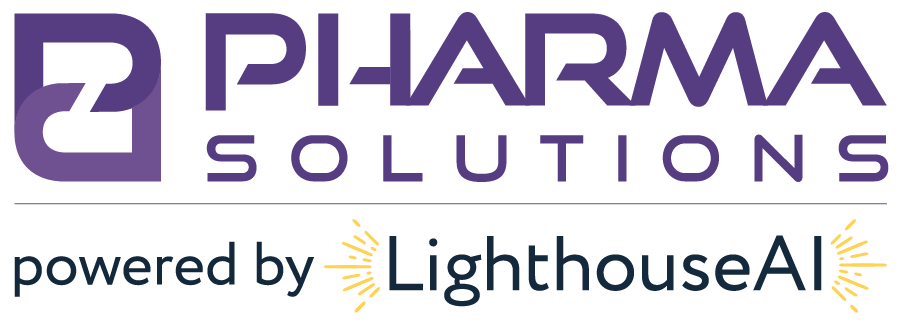Top 5 Mistakes Pharmacies Make During URAC Accreditation
navigating clients through URAC accreditation, I’ve found the most problematic areas for pharmacies fall within a similar set of categories. Aside from these common challenges,
URAC has adjusted their standards again in version 4.0 for both the Specialty Pharmacy Accreditation and Mail Service Accreditation programs.
Risk Management
URAC has always put a large emphasis on information management (IT) for security reasons as they pertain to patient data. Protected health information (PHI) is extremely vulnerable to breaches and URAC wants to see that your pharmacy is able to prevent breaches and adequately respond to a breach should one occur. It is considered best practice for your pharmacy to have an independent risk assessment performed by either an individual or organization that has no stake in the outcome of the assessment.
A business continuity plan would fall under the risk management section as well. A strong plan will show how the pharmacy will continue operations in the event of a power outage or disaster situation. In addition to a formal plan, your pharmacy will also want to do a tabletop exercise of the business continuity plan involving discussion-based sessions where pharmacy staff can discuss how they would respond to various emergency situations.
Vendor Agreements
Some of your pharmacy’s vendors will include your pharmacy’s dispensing software, shredding company (if applicable), your telephone provider and any contracted delivery drivers that you may have. Frequently, we see pharmacies that have no signed agreements with their vendors and URAC will certainly penalize you for this. Agreements and/or contracts will list the responsibilities of the vendor so that there is no dispute on who is taking care of what and how often. Also recommended to have on file are signed business associate agreements or BAAs. BAAs are documents that outline the “owner” of any PHI involved and each party’s responsibilities as they pertain to this PHI. It is imperative that your pharmacy have signed agreements and BAAs with each vendor as URAC will want to see them.
Shipping Validation
Specialty and Mail Service pharmacies often ship prescriptions and must ensure and maintain the temperature integrity of the product. This is important for all refrigerated, frozen and even room temperature products. Pharmacies must develop a standard procedure for shipment packing to include the proper materials, such as: coolers, ice packs, and more. These standard procedures must be “validated” with data logging equipment as well. Data loggers are devices that are placed in the shipment box and measure the temperature throughout the entire transit. The data is transmitted back to the pharmacy electronically and recorded. It is recommended that your pharmacy perform these validation tests at least twice a year, preferably in January and July which are the two most extreme months for weather. This data can then be analyzed to prove that your pharmacy’s standard procedures for packing shipments can maintain the temperature integrity throughout the entire shipping process, all the way to the patient’s home. If it is noted that the temperature goes out of range, your pharmacy can make adjustments to the packing process such as increasing or decreasing the number of ice packs in the shipment. It’s also a good idea to put this data in a validation report to show that your process has been validated and confirmed.
Temperature Monitoring
It used to be considered sufficient for a pharmacy to rely on regular thermometers in drug storage areas to record the temperature and humidity twice a day. This has actually proven problematic as it does not portray the full picture of your storage area and may not adequately depict temperature and/or humidity excursions in the pharmacy. It’s a better idea to implement continuous temperature monitoring with devices that are similar to data loggers. These devices will need to be programmed with acceptable temperature and humidity ranges and will need to have some sort of alert system in place to notify key personnel of any excursions in real time. The notifications can be your choice of either email or text but it’s highly recommended to send alerts to more than one person.
Quality Management Improvement
Quality Improvement is defined as tracking and trending to gather data and then using that data to apply improvements on pharmacy operations. Quality Management is important in any pharmacy and specialty/mail service is no different. There are several metrics that your pharmacy will be tracking such as dispensing accuracy, patient satisfaction and customer service performance. Key personnel should meet at least once a quarter to present this data. Advisably, the key personnel should form a “Quality Management Team” to be in charge of the various quality improvement projects in the pharmacy. A senior clinical staff person, most likely the pharmacist-in-charge, would be the most appropriate chairperson for these quarterly meetings. Make sure you have a very detail-oriented staff member to record the minutes.
Bonus: Create a Welcome Packet!
Speaking of documentation, your pharmacy has a lot of information to provide to new patients and a welcome packet is a great way to compile all of this content into an easily digestible package. Your welcome packet should contain your pharmacy’s information, website, toll-free or after-hours phone number, as well as other helpful instructional details like how a patient can order refills or learn more about their insurance coverage.
Conclusion
URAC Accreditation can cause headaches for even the most organized pharmacy. The process has presented obstacles in which it’s greatly beneficial to have a professional in your corner who has been through accreditation before. You can never be too prepared and the best way to achieve success is with a little assistance.




0 Comments